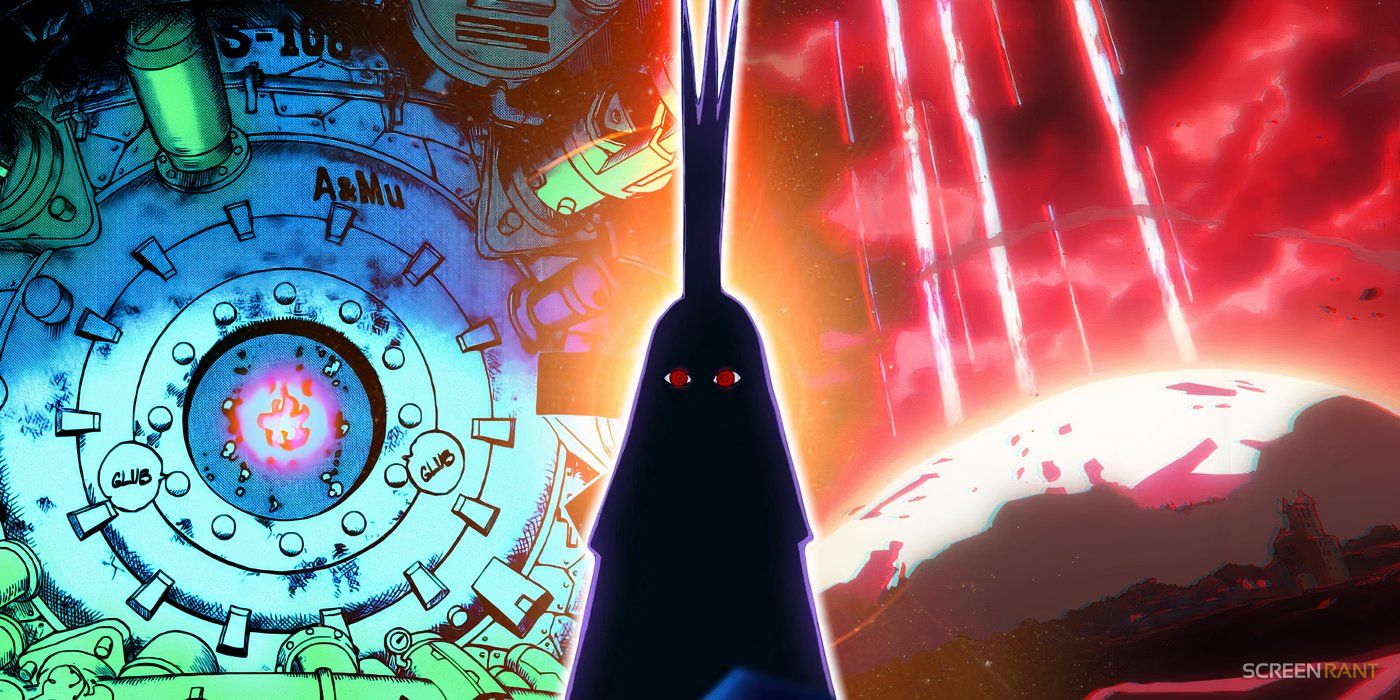
Warning: Contains spoilers for chapter #1114 of One Piece.
SUMMARY
The Mother Flame hints at the real-life inspiration for the Ancient Kingdom being the lost continent called the Land of Mu.
Imu’s connection to the Land of Mu suggests he possibly betrayed the Ancient Kingdom, leading to their defeat.
The giant straw hat preserved at Mariejois by Imu hints at a possible close relationship with Joyboy, which could be crucial to the lore of the Void Century.
One Piece has finally given fans a glimpse of the mysterious Mother Flame, and it may be the final key to deciphering Imu’s identity and the history of the Ancient Kingdom. Eiichiro Oda often draws inspiration from real-life locations in pop culture, history, and even mythology, and a subtle detail provided by the Mother Flame suggests both Imu and the Ancient Kingdom have a surprising real-life inspiration.
Chapter #1114 of One Piece shows that the contraption holding the Mother Flame on Egghead is inscribed with a peculiar set of letters reading “A & Mu”. On the surface, this is a pun on the word “atom,” as the letters can be read as “aa-to-mu” in Japanese, referencing the parallels between Vegapunk and Einstein, who is the inspiration for his character. However, the letters could also stand for “Atlantis and the Land of Mu”, confirming a commonly held suspicion that the Ancient Kingdom is inspired by the lost city of Atlantis.
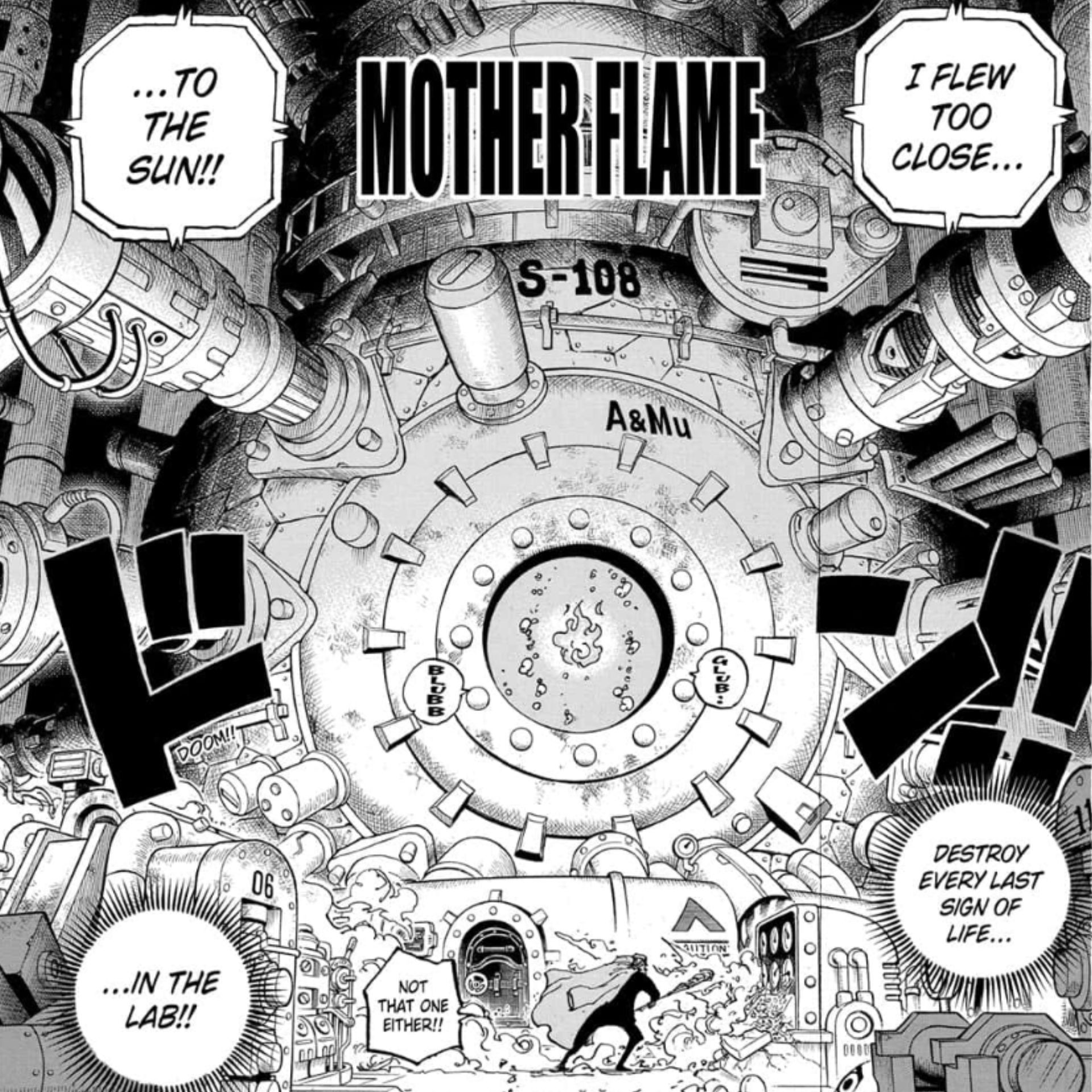
Meanwhile, the “Mu” implies a connection to Imu, who has the odd habit of referring to himself in the third person using the pronoun “mu”. The mythical lost continent of Mu in real life has connections to the Egyptian Sun God Ra, strengthening the connection to Sun God Nika and the Ancient Kingdom. This suggests that Imu may have belonged to the Ancient Kingdom and possibly betrayed them, and Joyboy.
One Piece’s Mother Flame Reveals the Inspiration Behind the Ancient Kingdom
The Land of Mu is Similar to the Ancient Kingdom in Many Ways
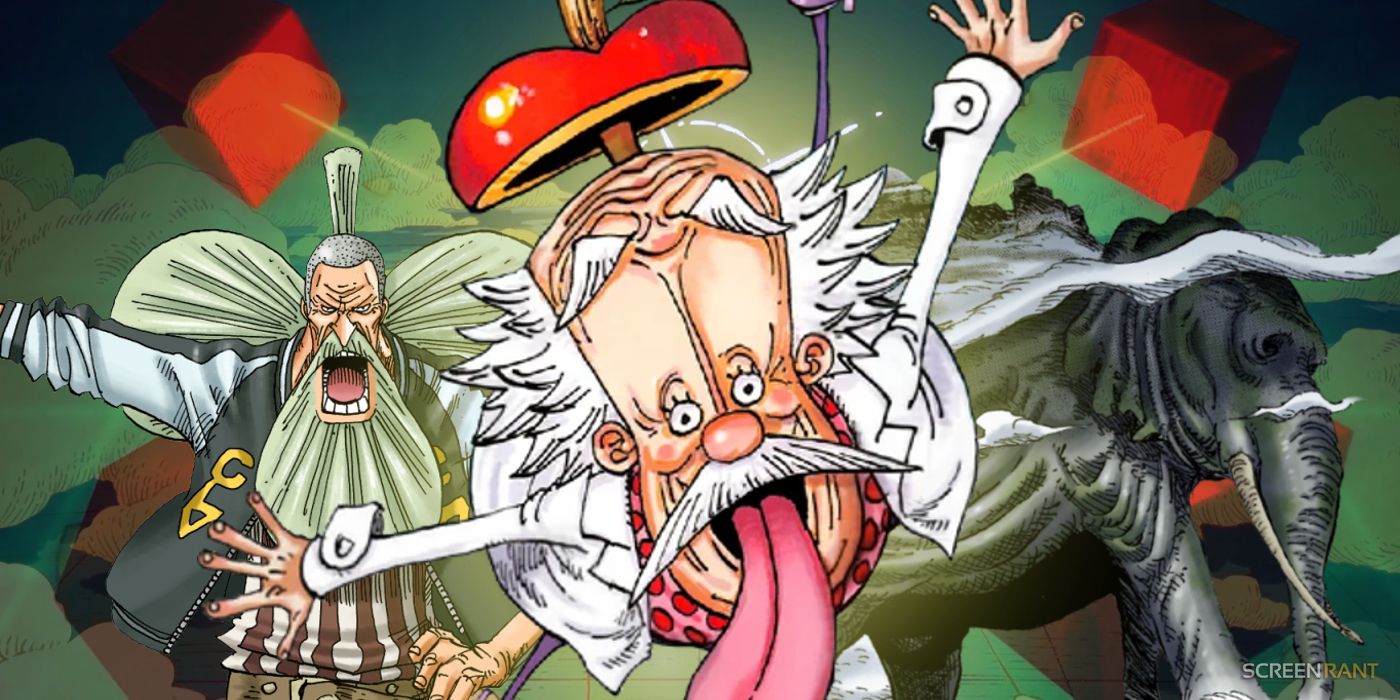
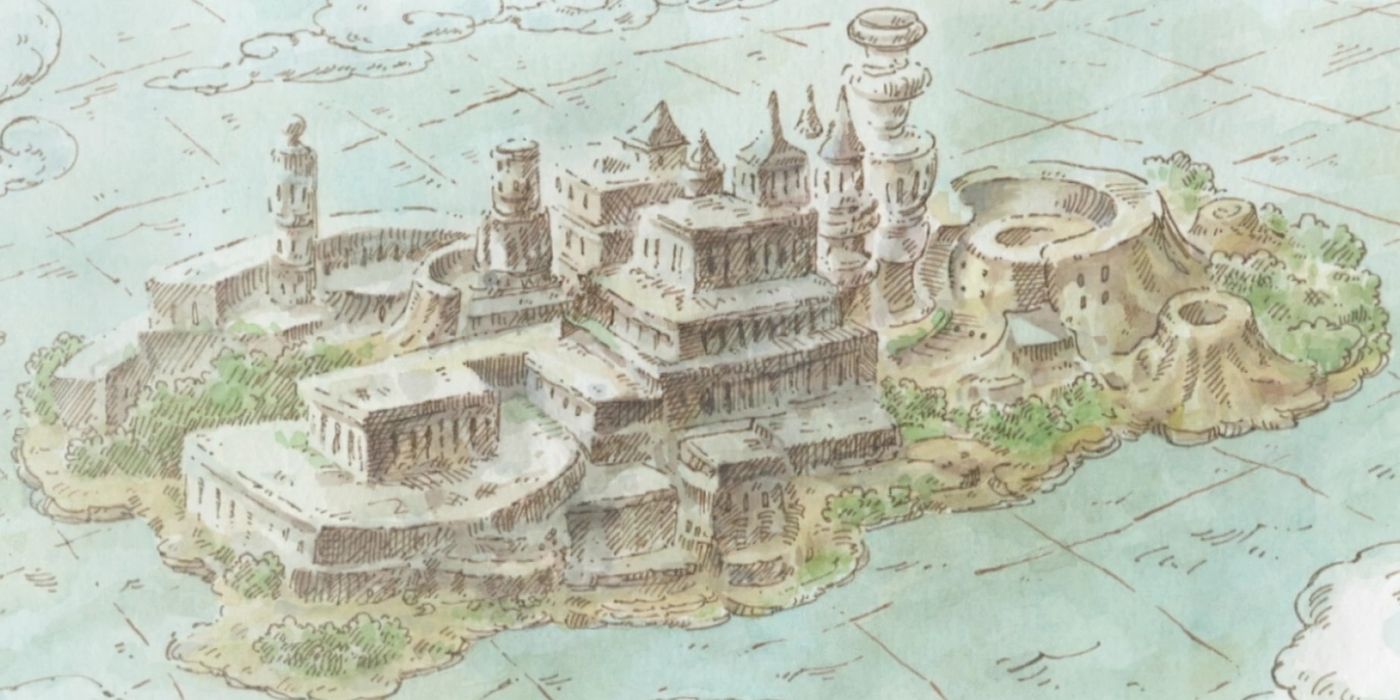
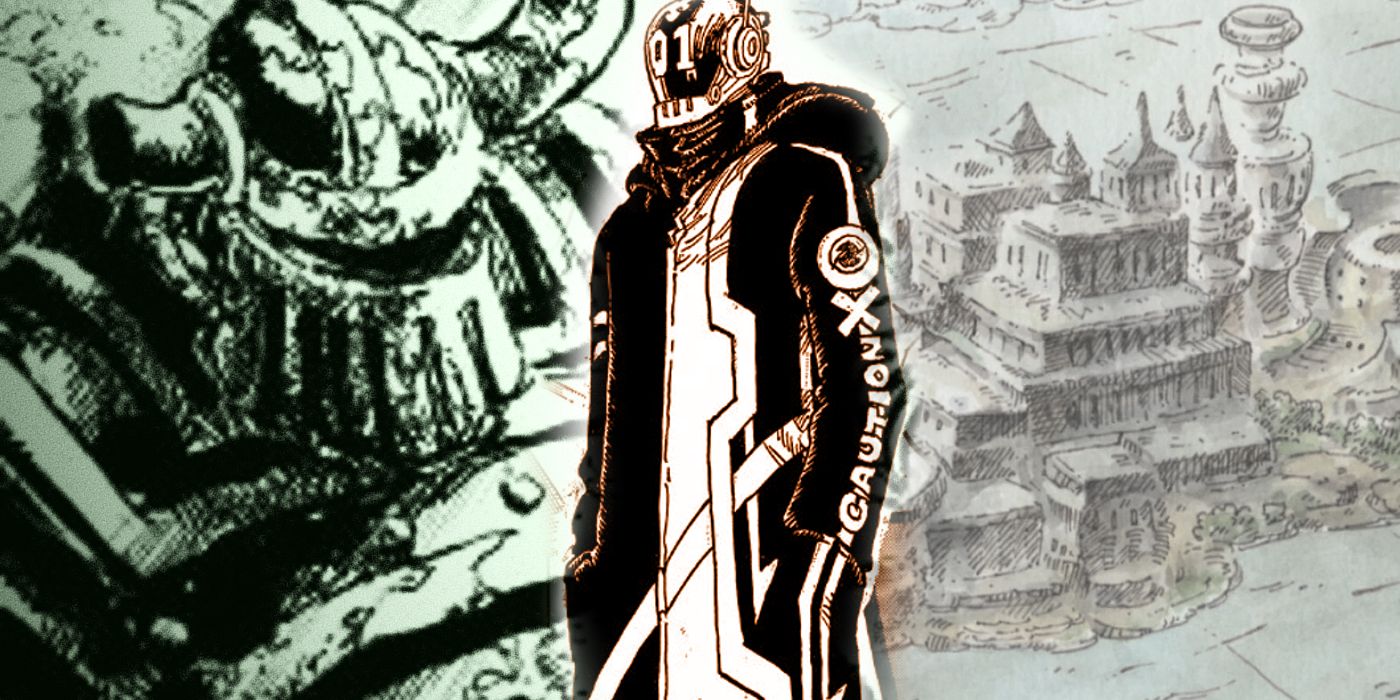
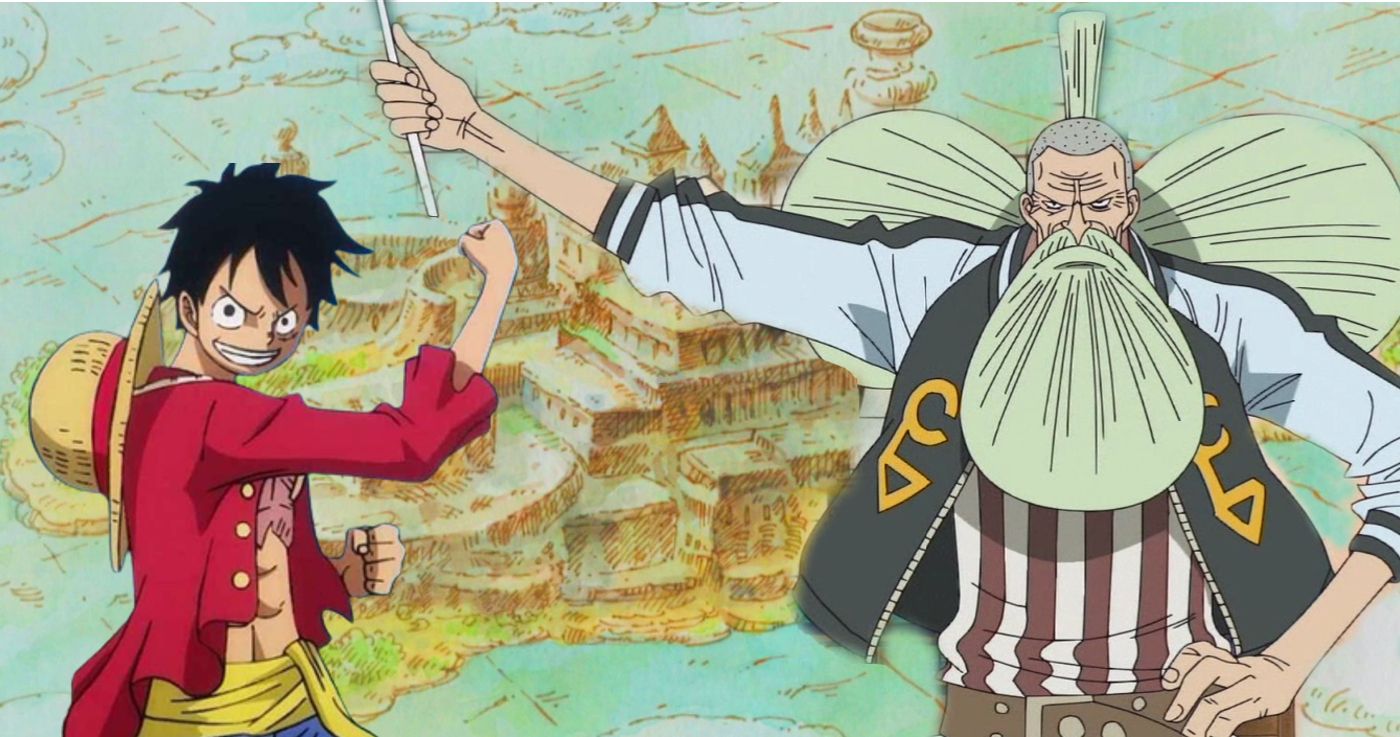
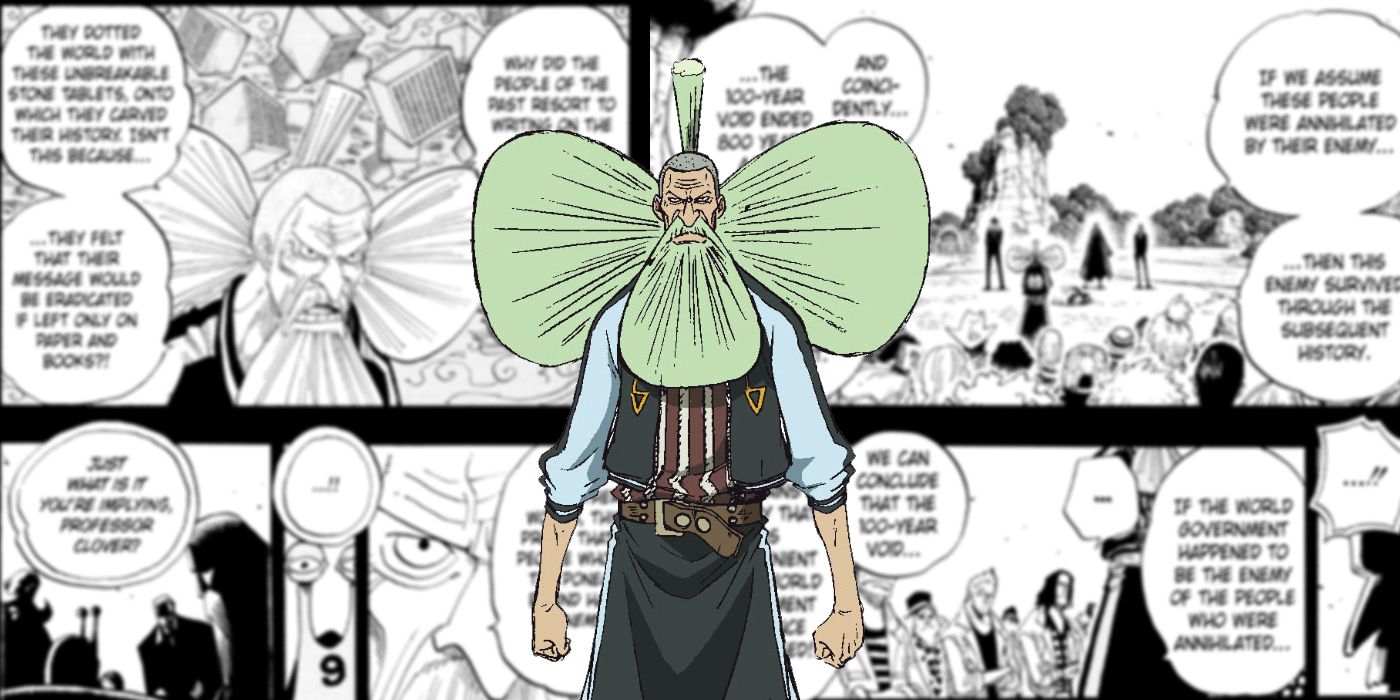
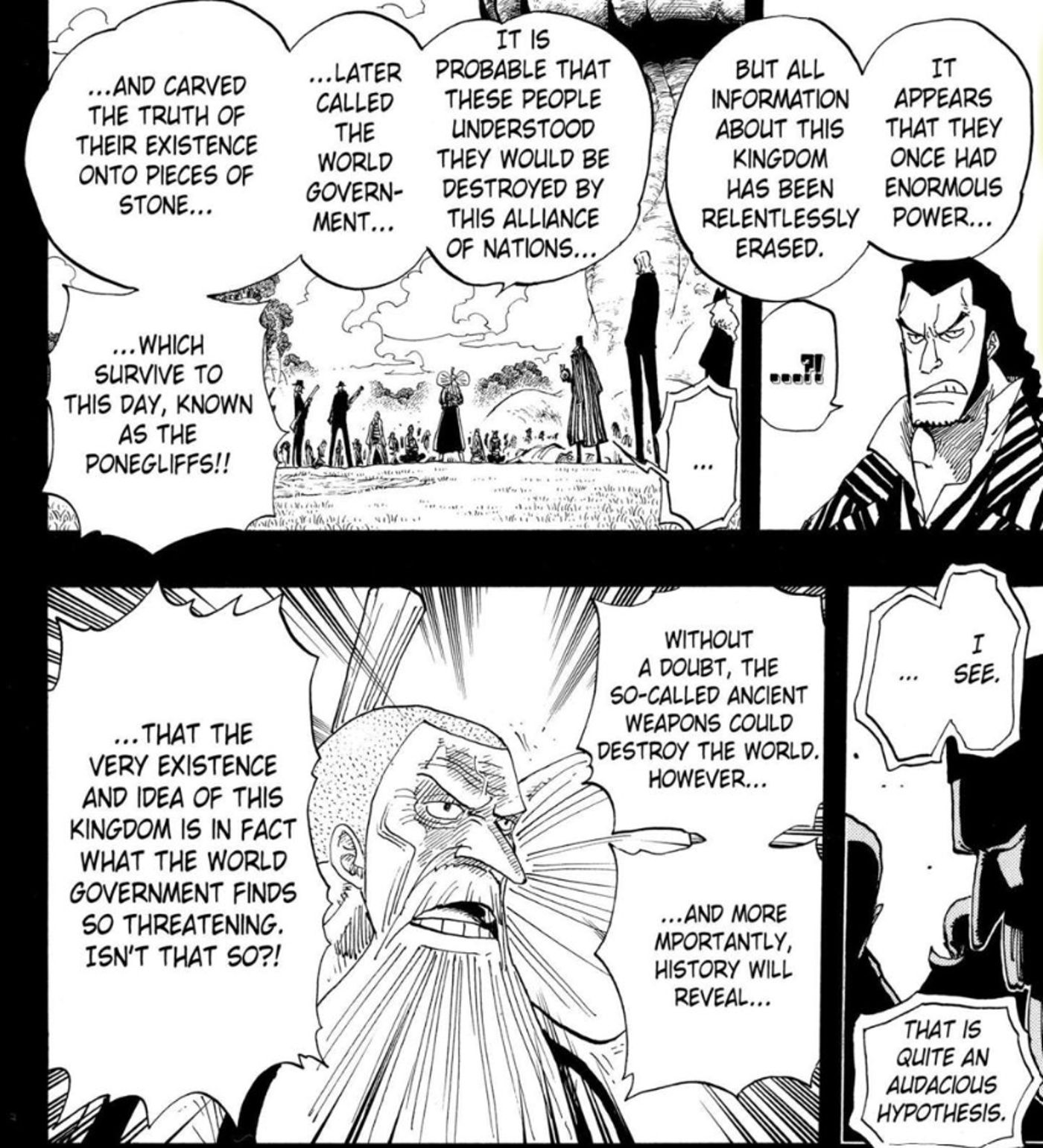






Though the existence of the Land of Mu has been dismissed in real life, its legend may have inspired Oda when crafting the lore of the Ancient Kingdom. The myth of the Land of Mu was first popularized by archaeologist Augustus le Plongeon, who thought it to be the location of the lost city of Atlantis.
The name “Mu” originated from misinterpretations of Mayan texts which supposedly described a land that had been submerged by a catastrophe. This aligns with One Piece‘s description of the Ancient Kingdom, which was completely erased from history and is speculated to have sunk like Atlantis.
Interestingly, James Churchward, who is primarily associated with the myth of the lost continent, claimed that he learned of its existence from stone tablets inscribed with its history, much like the Poneglyphs which tell the history of the Void Century in One Piece. Churchward also claims that the Land of Mu was a highly advanced civilization that was obliterated overnight.
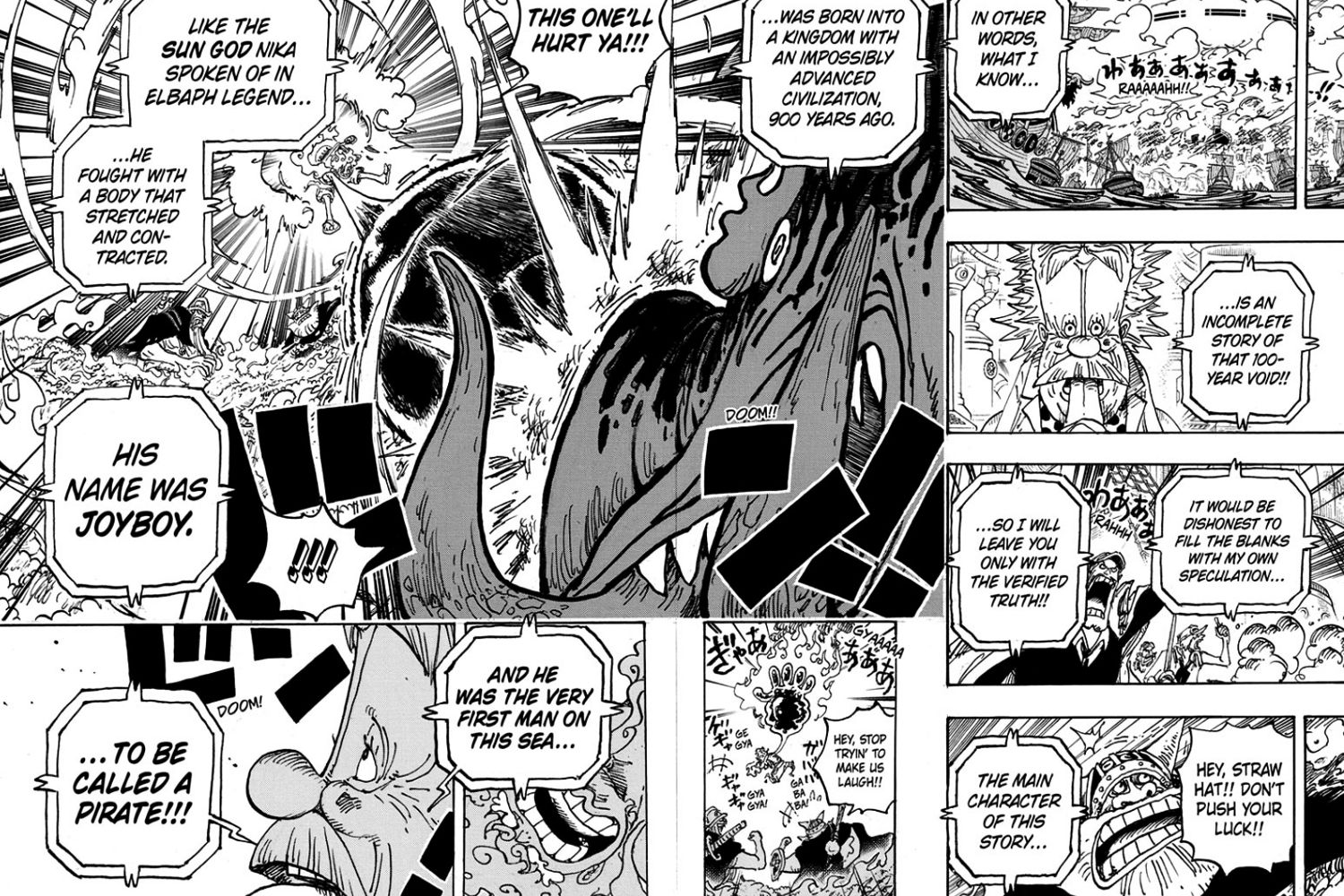
This once again draws parallels to Vegapunk’s description of the Ancient Kingdom as a scientifically advanced nation and aligns with the popular theory that the Ancient Kingdom was instantly destroyed by the Ancient Weapons like Lulusia. Subsequent research on the Land of Mu also claims that its destruction began 800 thousand years ago, which again somewhat correlates to One Piece‘s concept of the Void Century, which took place 800 years ago.
According to Plongeon, a refugee from the Land of Mu also went on to establish Egyptian civilization and came to be known as Queen Moo. This may have made its way into One Piece in the form of Queen Nefertari Lily, an ally of the Ancient Kingdom and the first ruler of Alabasta which is One Piece’s version of Egypt.
Churchward also claimed that the king of the continent of Mu was called Ra and speculated he could be connected to the Egyptian Sun God Ra, who is considered one of the inspirations for Sun God Nika in One Piece. If so, Joyboy may have been the ruler of the Ancient Kingdom as he is known to be the previous user of the Nika fruit and has even been confirmed to be a citizen of the Ancient Kingdom.
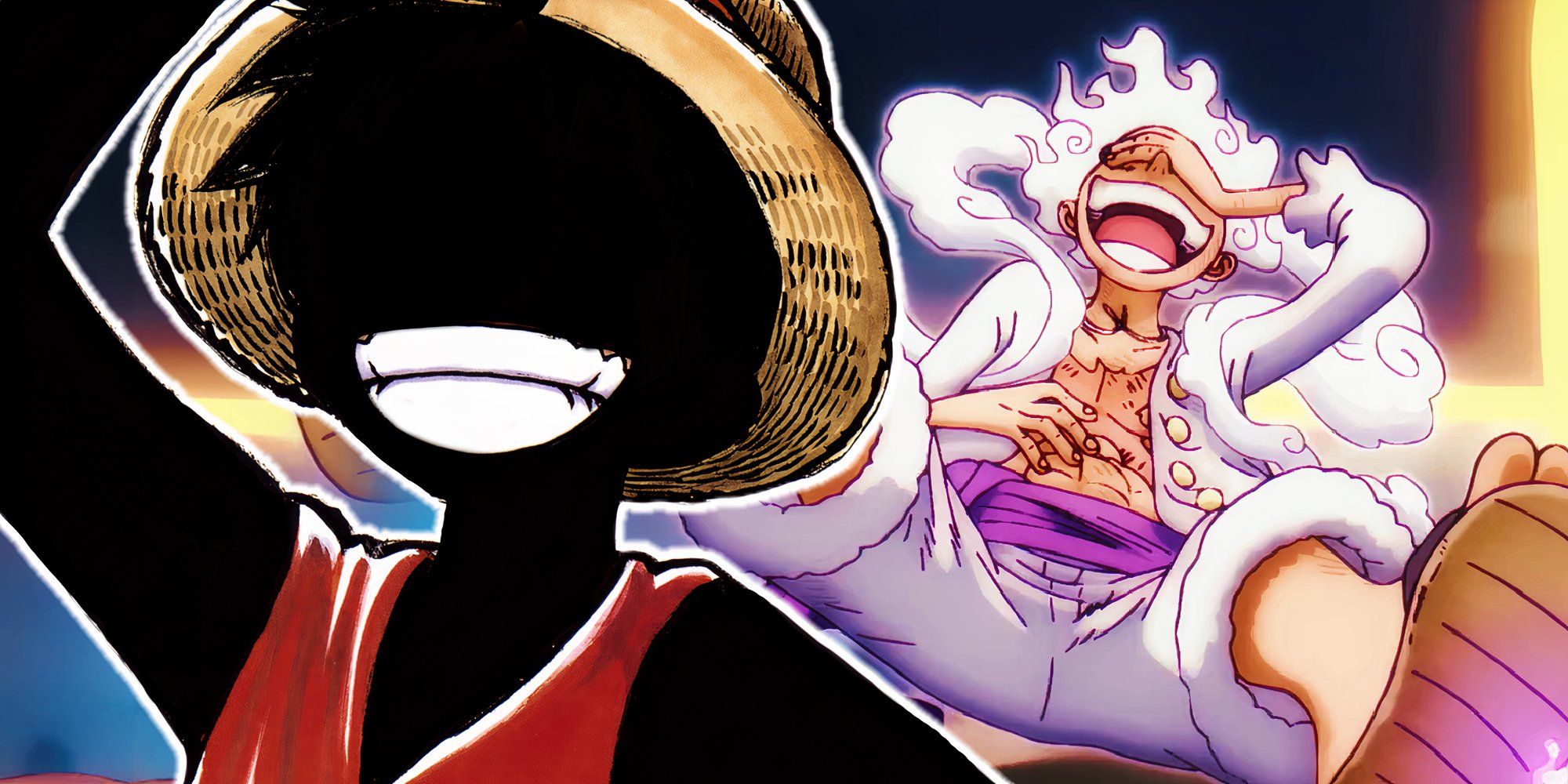
RELATED
Joyboy’s Real Identity is One Piece’s Biggest Reveal Since Gear 5
One Piece is finally delving into the huge mystery surrounding Joyboy and it may just be the series’ biggest revelation since Luffy’s awakening.
Imu May Have Been Closer to Joyboy Than Fans Think

The giant straw hat at Mariejois is highly speculated to be Joyboy’s due to its sheer size and the meaning associated with it in One Piece. The Imu fans see at present is very likely the same Imu from the Void Century. If so, the fact that Imu has preserved the giant straw hat suggests he has some connection to Joyboy. It would make perfect sense if Imu did belong to the Ancient Kingdom and served under Joyboy (if he was their ruler) but chose to betray him for whatsoever reason.
The possibility of Imu serving under Joyboy would also tie in with the theory that Imu was inspired by Imhotep, a priest of the Sun God Ra. Even Professor Clover himself seems confused about how a nation as powerful as the Ancient Kingdom could have been wiped out so easily, and it would make a lot of sense if Imu’s betrayal was the reason for their defeat. It is possible that Imu wanted to be king himself or disagreed with the Ancient Kingdom’s ideals as Professor Clover hinted, and thus revolted against them.
But of course, this is only speculation and it may turn out that Imu was the ruler of his own separate nation during the Void Century. If so, one possible inspiration for his kingdom could be Lemuria, which was another mythical, lost continent said to have gotten its name from the Land of Mu. However, little else is known about Lemuria other than it being a land bridge that also sunk to properly connect it to the rest of the theory.
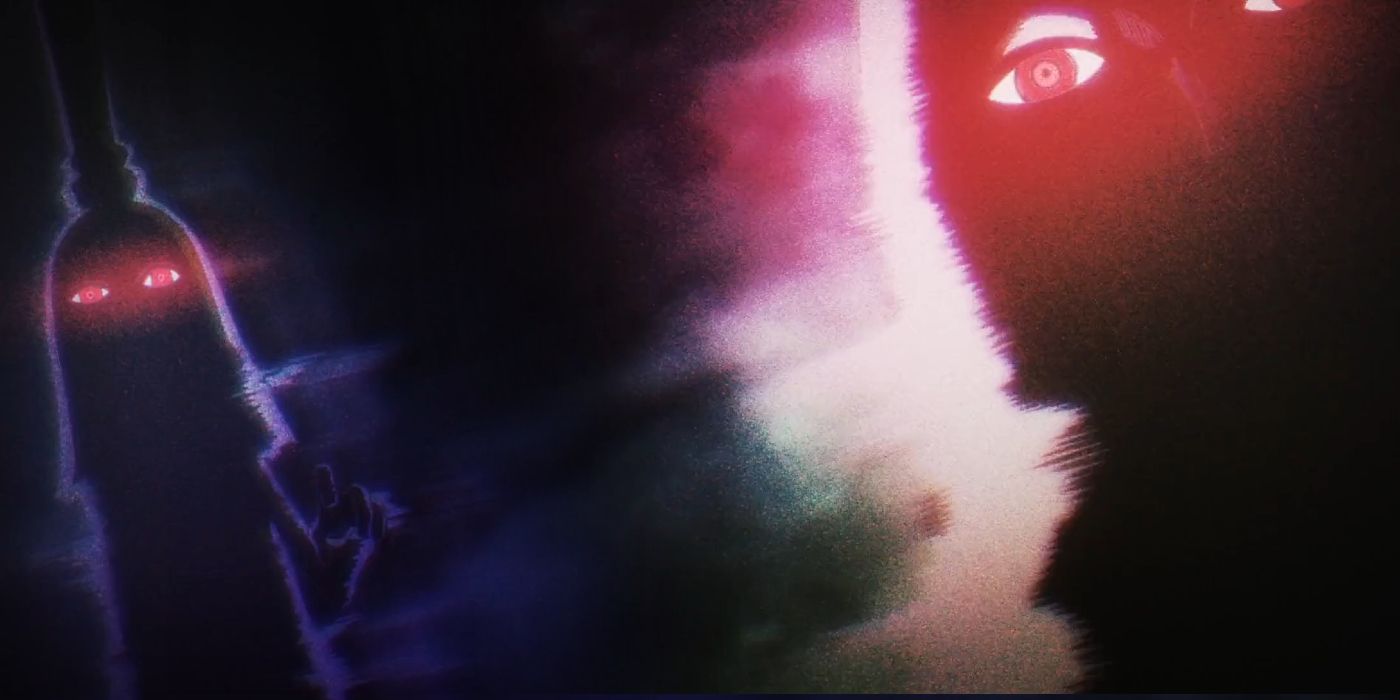
Nonetheless, the initials on the Mother Flame possibly signify that the Ancient Weapons may have been created by the advanced Ancient Kingdom. Vegapunk made it his life’s mission to replicate the power source of the Ancient Kingdom and the Mother Flame appears to be the closest he could get to achieving that dream.
The mysterious connection between the Ancient Kingdom, Joyboy, and Imu is no doubt the key to unraveling the truth about the Void Century, and perhaps the Mother Flame could be the very first piece of the puzzle. It is unlikely that One Piece‘s Egghead Arc will reveal the whole truth, but perhaps Eiichiro Oda may leave fans with just enough clues to get there themselves.
News
Fútbol masculino olímpico de París: España, Argentina y Francia compiten por el campeonato
– El campeón olímpico defensor Brasil no puede asistir a los Juegos Olímpicos de este año. Por ello, se le dio la oportunidad a las selecciones francesa, argentina y española. Calendario de la fase de grupos de los tres candidatos…
“Damn Oda married Nami”: One Piece’s Nami Helped Eiichiro Oda’s Wife Chiaki Inaba Meet the Love of Her Life
SUMMARY Eiichiro Oda’s One Piece has become extremely popular among fans since 1997. Chiaki Inaba’s cosplay of Nami at the Jump Festa 2002 made Eiichiro Oda fall in love with her. Fans react to the adorable love story of Eiichiro…
“It’s dark, it’s brutal”: Zoro’s Past Becomes Very Disturbing if This One Piece Theory About Kuina’s Death After Their Duel Comes True
SUMMARY One of Zoro’s biggest motivations for becoming the strongest swordsman in the world is the death of her friend Kuina. However, her death is a mystery as One Piece fans don’t believe that she could have just died from…
One Piece Chapter 1121 Spoilers
The One Piece manga is currently featuring the truth of the world as Vegapunk‘s broadcast continues. Even after their desperate attempts to stop the broadcast, the Gorosei fails miserably. One Piece Chapter 1121 will continue Vegapunk’s broadcast as he talks…
One Piece: Eiichiro Oda Subtly Dropping the Hint About Luffy’s Nationality Has a Connection to Finding Laugh tale That Exists in Spacetime (Theory)
SUMMARY Laugh Tale, an island located just a few arcs away, will require a great deal of work on the part of the crew as One Piece has entered the final tale. One argument suggests that Eiichiro Oda hinted at…
Messi dijo a los jugadores argentinos que no se burlaran de sus rivales
Según el centrocampista Rodrigo de Paul, el capitán Lionel Messi advirtió a los jugadores argentinos, pero aun así cantaron la canción “racista” a la selección francesa en su ausencia. Messi ha impedido repetidamente que los jugadores argentinos canten canciones de…
End of content
No more pages to load











